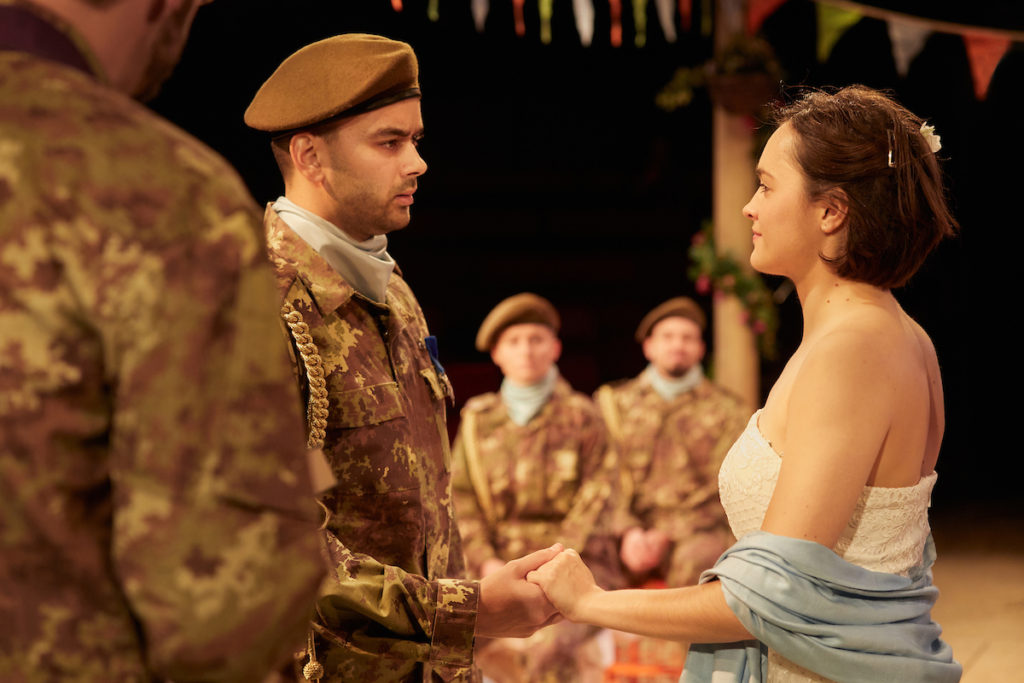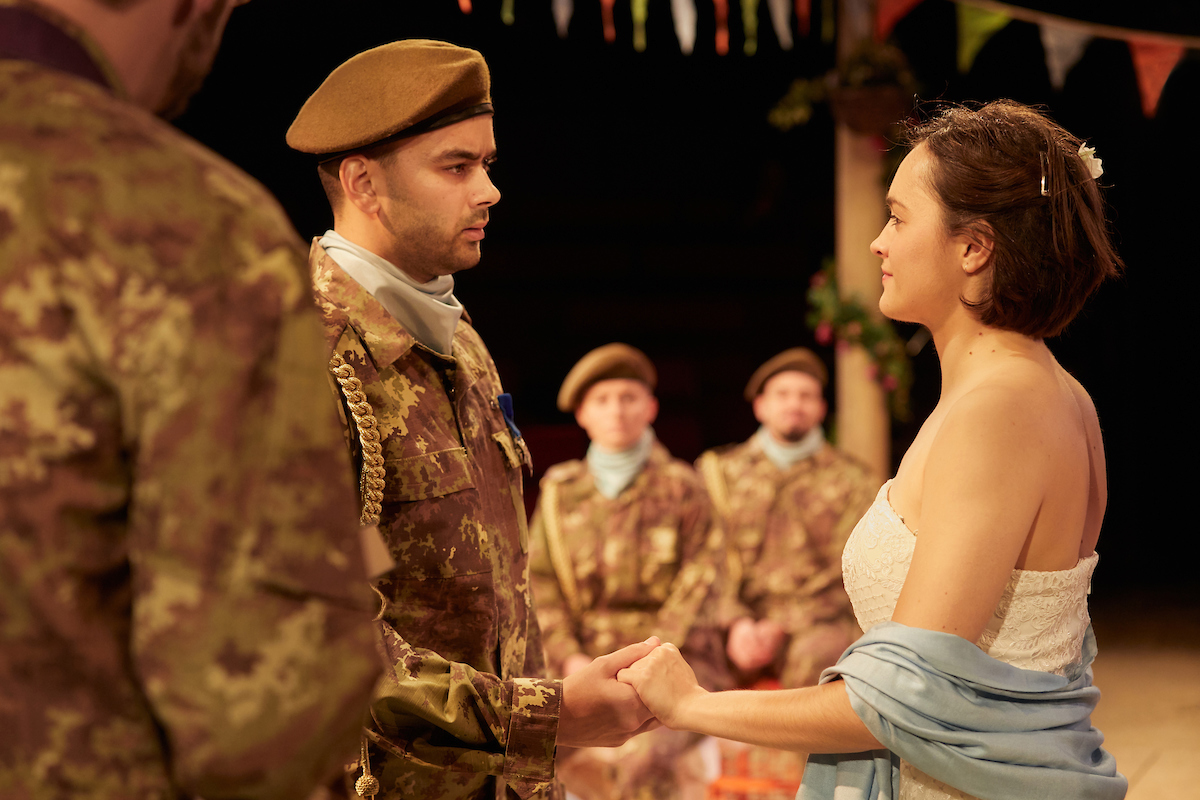
Shakespeare at the Tobacco Factory has always attempted to keep things fresh and during the twenty seasons since it began that freshness has brought accessibility.
In tackling Much Ado director Elizabeth Freestone has tinkered a little with some modern staging, taken a couple of liberties with the occasional aside and introduced a 50/50 gender balance in the cast. These have all helped spice things up.
It is true that the themes around the play concerning returning soldiers, deception and ultimately the most powerful emotion of all, love, resonate as much in this era as in any other. The plot turns on a deceitful piece of fake news that quickly goes viral. Fair enough for topicality, but that isn’t what makes the production so powerful, and so relevant.
What really allows Much Ado to be completely user friendly is the clarity imbued in the spoken word and the tremendous playing in the round. Fantastic casting has given us truly believable characters that are able to leave us in awe at the magical power of the language.
Soldiers in modern battle dress spring to life at the outset and through a series of glimpsed scenes we learn the root of Don Jon’s treachery. Played by Georgia Frost the recasting of the part as a sister of Zachary Powell’s powerful Don Pedro gives another dimension and keeps us on our toes. Christopher Bianchi’s Leonato and Alice Barclay’s Ursula are very much in love and on the same page. Bianchi has a brittle strength and this shatters during the wedding scene as Imran Momen explodes in rage at his beloved Hero’s supposed deceitful behaviour.
There are several superb set pieces and the excited expectation at the wedding scene being destroyed by the lie told is truly shocking. Hannah Bristow’s Hero is suitably sweet and her relationship with Claudio is so well matched that the break up is made all the more convincingly awful.
The doubling of parts is again well cast and allows virtuosity to shine, not least by Alex Wilson, whose Friar is put centre stage and around whom a way out of the mess is glimpsed. Louise Mai Newberry’s Dogberry along with Hannah Bristow’s cameo as Verges give a nice counterpoint to the grim discovery around Don Jon’s plot.
However, it is Geoffrey Lumb’s Benedick and Dorothea Myer-Bennett’s Beatrice that really elevate this production from good to great. The chemistry that each exudes is intoxicating when they are on their own, but when they are together – well, the sparks fly in a dazzling technicolour. Both have a brilliant comic touch; Myer-Bennett’s look of genuine disdain is a thing to behold; all the more so when faced by Lumb’s infectious cheeky boy toothy grin. The scenes when they each learn of the other’s love for them brought howls of laughter, all the more so because of skilful stagecraft in the round.
The mixed aged audience cheering at the end is testament to the freshness that persists. With productions of this calibre, STF has got at least another 20 years in it. ★★★★★ Bryan Mason 24th October 2019
Photo by Mark Douet


